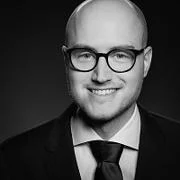Overview
Introduction
From climate change to financial market fluctuations, many of today's most pressing issues are rooted in human behaviour. This programme will equip you with practical skills to drive positive behavioural change.
Our programme goes beyond theory, examining how individuals and teams make decisions in real-world scenarios. Drawing on insights from psychology, economics and the wider social sciences, you’ll delve into the latest methodologies and statistical approaches to behavioural science and examine the impact of different social and environmental contexts on behaviour.
The wide-ranging curriculum includes core courses on the fundamentals of behavioural science and research methods, including experimental and quasi-experimental approaches. Optional courses cover topics such as health, consumer behaviour and happiness. You’ll be taught by behavioural science specialists working at the forefront of research, and benefit from our close links with the LSE Behavioural Lab – a leading research facility in the field.
Our community is friendly and diverse, welcoming students from a range of disciplinary backgrounds, including psychology, business, and marketing.
When you graduate, you’ll have the skills to tackle real-world challenges such as improving workplace wellbeing and leadership issues in many different professional settings.
Wellbeing specialism
You’ll have the option to take a Wellbeing specialism on this programme (which can be added to your degree title). You’ll complete comprehensive training on the science of wellbeing and learn how it can be applied to policy design, appraisal and evaluation.
To take this specialism, you must enrol on the Happiness and Wellbeing for Policy courses and complete a dissertation on a wellbeing topic. Learn more on our department's website.
Our department was recently ranked first in the UK for psychology by the Good University Guide 2026, and first in London for psychology by the Complete University Guide 2026.
Preliminary readings
- P Dolan Happiness by Design (Penguin, 2014)
- D Kahneman Thinking Fast and Slow (Penguin, 2012)
- C R Sunstein and T Thaler Nudge (Penguin, 2009)
Entry requirements
Upper second class honours (2:1) or equivalent.
Please select your country from the dropdown list below to find out the entry requirements that apply to you.
We encourage applications from a range of disciplines within the social sciences and beyond, and have previously accepted students with backgrounds that include Economics, Psychology, Sociology, Statistics, Management, and Law. We require students to be passionate about studying Behavioural Science whilst having a rounded understanding of its applications in government, business, and NGOs. You can tell us about this passion in your statement of academic purpose.
The programme is anchored by quantitative methods, including experimental design and methods alongside quasi-experimental approaches. Although no prior experience is needed in this area, there is an expectation that applicants show evidence that they're aware of how the methodological and empirical dimensions of the programme informs its theoretical aspect, alongside a willingness to engage with a variety of datasets that give insight into complex behavioural processes.
Overseas
English language requirements
The English language requirement for this programme is Higher. Read more about our English language requirements.
Competition for places at LSE is strong. So, even if you meet the minimum entry requirements, this doesn't guarantee you an offer of a place.
However, please don’t feel deterred from applying – we want to hear from all suitably qualified students. Think carefully about how you can put together the strongest possible application to help you stand out.
Programme content
Year 1
You'll take three compulsory courses to the value of two units. You'll then choose two options from a selection of behavioural science courses. Finally, you'll write a dissertation, which counts as one unit.
Browse examples of previous PBS dissertations
Two half-unit courses from a range of options within the department
Why study with us
Discover more about our students and department.
Visit the PBS People page for more information about our faculty.
Meet the department
The Department of Psychological and Behavioural Science is a growing community of researchers, academics and students who explore the human mind and behaviour in a societal context.
From our early beginnings as a group of researchers studying psychology and society 60 years ago, the department is now home to an interdisciplinary faculty team conducting wide-ranging research.
Today, our research spans:
- social psychology
- behavioural economics
- political psychology
- organisational culture
- consumer behaviour
- public engagement
- community development
- global health, happiness and well-being
- planetary health.
Our research is connected with what is happening in the world today. The outputs impact policy, business and society at large. This focus on real-world issues sets our department, and LSE, apart from other institutions and our students inform and inspire the direction of our work.
We offer various taught programmes and research opportunities, ranging from our BSc in Psychological and Behavioural Science to doctoral training – all with an emphasis on practical, policy-related issues.
By maintaining this focus on real-world issues and societal impact, our department leads the way with innovative research in the field, the lab and everywhere in between.
We were recently ranked first in London for psychology (Complete University Guide 2026) and first in the UK for psychology (Good University Guide 2026). So, you’ll be studying at a top-rated university.
Whether you want to study, research or teach, you’ll find in our departments a supportive and inspirational community where you can contribute to global debates and change.
Learn more about our programmes and research.
Department of Psychological and Behavioural Science
Who's who
Professor Liam Delaney

Dr Matteo M Galizzi

Professor Jeremy Ginges

Dr Christian Krekel

Dr Dario Krpan

Dr Kate Laffan

Dr Laura M Giurge

Dr Ganga Shreedhar

Why LSE
University of the Year 2025 and 1st in the UK in 2025 and 2026
Times and The Sunday Times - Good University Guide 2025 and 20261st in London for the 14th year running
The Complete University Guide - University League Tables 20266th in the world for the study of social sciences and management
QS World University Rankings by Subject 20256th in the world for leading the way in social and environmental sustainability
QS World University Rankings: Sustainability 2026Your application
Overview
We welcome applications from all suitably qualified prospective students. At LSE, we want to recruit students with the best academic merit, potential and motivation, irrespective of background.
We carefully consider each application and take into account all the information included on your application form, such as your:
- academic achievement (including predicted and achieved grades)
- statement of academic purpose
- two academic references, but with potential for professional references in some instances - see further information
- CV.
See further information on supporting documents.
You may need to provide evidence of your English language proficiency. See our English language requirements.
Contact us
Contact Postgraduate Programme Manager Will Stubbs at pbs.msc@lse.ac.uk.
When to apply
Applications for this programme are considered on a rolling basis. This means that applications will close once the programme is full.
There is no fixed deadline. However, if you’d like to be considered for any funding opportunities, you must submit your application (and all supporting documents) by the funding deadline. See the fees and funding section below for more details.
Fees and funding
The table of fees shows the latest tuition fees for all programmes.
You're charged a fee for your programme. At LSE, your tuition fee covers registration and examination fees payable to the School, lectures, classes and individual supervision, lectures given at other colleges under intercollegiate arrangements and, under current arrangements, membership of the Students' Union. It doesn't cover living costs or travel or fieldwork.
Home
Home student fee (2026/27)
For this programme, the tuition fee is different for home and overseas students depending on their fee status.
Overseas
Overseas student fee (2026/27)
For this programme, the tuition fee is different for home and overseas students depending on their fee status.
Learning and assessment
How you learn
How you're assessed
All taught courses are required to include formative coursework which is unassessed. It's designed to help prepare you for summative assessment which counts towards the course mark and to the degree award. LSE uses a range of formative assessment, such as essays, problem sets, case studies, reports, quizzes, presentations, mock exams and many others. Summative assessment will consist of essays, video presentations, reports, examinations, and a dissertation. An indication of the formative coursework and summative assessment for each course can be found in the relevant course guide.
Graduate destinations
Overview
This MSc will prepare you to seek and/or advance your career in behavioural science in multiple sectors, including the public and private sectors, non-governmental organisations and academia. Upon graduation you can expect to take on more responsibility or pursue new and expanded opportunities within the behavioural science field.
Further information on graduate destinations for this programme
Median salary of our graduate taught students 15 months after graduating:
Top 5 sectors our students work in:
Career support
From CV workshops through to careers fairs, LSE offers lots of information and support to help you make that all-important step from education into work.
Many of the UK’s top employers give careers presentations at the School during the year and there are numerous workshops covering topics such as job hunting, managing interviews, writing a cover letter and using LinkedIn.
See LSE Careers for further details.
